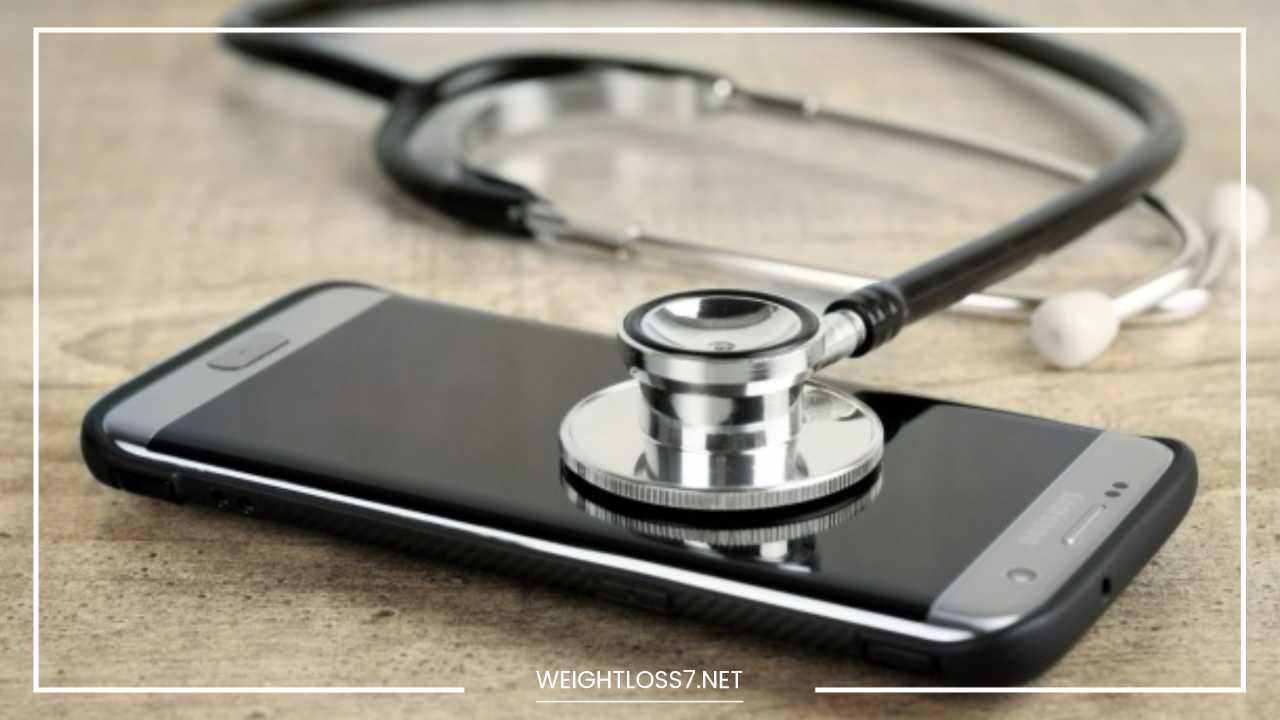Online Health Tools: A Guide for a Healthier You

Online Health Tools
Online Health Tools: Empowering Your Wellness Journey
The internet has revolutionized how we access information, and healthcare is no exception. Online health tools have become a powerful resource for individuals to take a more proactive approach to their well-being.
From symptom checkers to fitness trackers, these tools empower you to understand your health, manage chronic conditions, and make informed decisions.
This comprehensive blog post delves into the exciting world of online health tools, exploring their benefits, limitations, and how to use them effectively.
We’ll delve deeper into specific tool categories, address potential risks, and provide practical tips to navigate the online health landscape with confidence.
Unveiling the Toolbox: A Deep Dive into Online Health Tools
The vast landscape of online health tools offers something for everyone. Here’s a detailed look at some of the most popular categories:
-
Health Information Sites: Reputable websites from government agencies (.gov) or well-established medical institutions like the Mayo Clinic or the National Institutes of Health (NIH) provide trustworthy information on various health topics. These sites can be a great starting point for research and learning about diseases, symptoms, treatment options, and even clinical trials for specific conditions.
-
Symptom Checkers: These interactive tools ask a series of questions about your symptoms and offer potential explanations. While not a substitute for professional diagnosis, symptom checkers can be a helpful starting point to understand your concerns and guide you towards seeking medical advice if necessary. Some advanced symptom checkers, like those offered by reputable medical institutions, may even suggest potential underlying causes and recommend next steps, reminding you to see a doctor for confirmation.
-
Health Calculators: From Body Mass Index (BMI) calculators to basal metabolic rate (BMR) calculators, these tools provide quick estimates and insights into various health parameters. However, it’s important to remember that these are estimates based on formulas. A doctor’s evaluation is crucial for personalized assessments that take into account factors like body composition, medical history, and activity levels.
-
Health Tracking Apps: These smartphone applications allow you to monitor various aspects of your health, such as sleep patterns (including sleep stages and quality), physical activity levels (distance, duration, intensity), calorie intake (through manual logging or integration with food diaries), and even mood tracking. Many apps offer personalized recommendations based on your data, gamification elements to boost motivation, and goal setting to help you stay on track with your wellness goals. Popular examples include MyFitnessPal, Fitbit, and Sleep Cycle.
-
Telehealth Platforms: Telehealth allows you to connect with healthcare professionals remotely through secure video conferencing or phone consultations. This convenient option is ideal for follow-up appointments, managing chronic conditions like diabetes or heart disease, or seeking care in areas with limited access to healthcare facilities. Platforms like Teladoc and Amwell offer a variety of telehealth services with licensed physicians and specialists.
-
Mental Health Resources: Online platforms like the National Alliance on Mental Illness (NAMI) and the Jed Foundation offer mental health assessments, self-help tools, and support groups. These resources can be a valuable starting point for individuals struggling with mental health concerns such as anxiety or depression, and can connect them with appropriate professional help, such as therapists or counselors.
-
Women’s Health Tools: There are online resources specifically designed to support women’s health needs. These can include tools for tracking menstrual cycles, monitoring ovulation, and even providing information on fertility and pregnancy. Some popular examples include Clue and Flo.
-
Men’s Health Tools: Similar to women’s health tools, there are resources designed to address men’s specific health concerns. These can include tools for tracking prostate health, monitoring erectile dysfunction, and offering information on sexual wellness. Some platforms like Hims & Hers cater to men’s health needs.
-
Condition-Specific Tools: Many organizations and patient advocacy groups offer online tools and resources specific to particular health conditions. These can provide valuable support and information for individuals managing chronic diseases like cancer, diabetes, or heart disease.
The Advantages of Online Health Tools: A Multifaceted Approach to Wellness
There are numerous benefits to incorporating online health tools into your wellness routine:
-
Accessibility and Convenience: Information and tools are readily available at your fingertips, 24/7. This empowers you to learn about your health on your own schedule, research specific conditions, and explore healthy lifestyle choices that fit your needs.
-
Empowerment and Education: By providing reliable information, these tools help you understand your health better, fostering a sense of empowerment and control over your well-being. You can learn about preventative measures, treatment options, and potential side effects of medications.
-
Proactive Health Management: Tracking your health data through apps and tools allows you to identify trends and make adjustments to your lifestyle for improvement. For example, monitoring your sleep patterns can help you identify sleep disturbances and make changes to your sleep hygiene, ultimately leading to more restful nights and increased energy levels.
-
Improved Communication with Healthcare Providers: Online tools can facilitate communication with your doctor by providing data and insights to discuss during consultations. You can share sleep data or activity logs with your doctor to gain a more comprehensive picture of your health.
-
Enhanced Self-Care: Many online resources offer personalized recommendations and support for managing chronic conditions and maintaining overall health. For instance, diabetes management apps can help you track blood sugar levels, monitor medication intake, and offer guidance on healthy eating habits.
-
Mental Health Support: Online platforms can provide a safe space for individuals struggling with mental health concerns to connect with others facing similar challenges. Support groups and online communities can offer a sense of belonging and reduce feelings of isolation.
-
Reduced Healthcare Costs: Telehealth appointments can be a more affordable alternative to traditional in-person visits, particularly for follow-up consultations or managing chronic conditions. Additionally, online health information can empower individuals to make informed healthcare decisions, potentially reducing unnecessary tests or procedures.
Limitations and Cautions: Using Online Health Tools with a Critical Eye
While online health tools offer a wealth of benefits, it’s crucial to be aware of their limitations and potential risks:
-
Accuracy of Information: Not all online information is created equal. Be wary of unverified sources and stick to reputable websites from established medical institutions or government health agencies like the Centers for Disease Control and Prevention (CDC). Websites with a “.gov” or “.edu” suffix are generally more reliable sources.
-
Self-Diagnosis is Risky: Online symptom checkers are not a substitute for professional medical diagnosis. If you’re experiencing concerning symptoms, always seek medical advice from a qualified healthcare provider. Symptom checkers can be a helpful starting point, but a doctor can perform a physical examination, order necessary tests, and create a personalized treatment plan.
-
Data Privacy Concerns: When using health apps and online tools, be mindful of data privacy policies and choose platforms with strong security measures to protect your sensitive health information. Review the privacy policy before using an app and look for features like data encryption and two-factor authentication.
-
Focus on Overall Wellness: Don’t get caught up solely in numbers and data points. Online tools provide insights, but a holistic approach that considers your physical, mental, and emotional well-being is essential. Don’t become fixated on a single metric; focus on making sustainable lifestyle changes for long-term health.
-
Limited Scope: Online health tools cannot address complex medical conditions or emergencies. If you’re experiencing severe symptoms, sudden changes in your health, or a medical emergency, seek immediate medical attention from a qualified healthcare professional.
Cultivating a Healthy Relationship with Online Health Tools: Practical Tips
Here are some tips for using online health tools effectively and getting the most out of them:
-
Prioritize Credibility: Look for websites with a “.gov” or “.edu” suffix, or those affiliated with established healthcare organizations. Check for authorship by qualified medical professionals and ensure the information is current and up-to-date.
-
Consult Your Doctor: Discuss the information you find online with your doctor to get personalized advice tailored to your specific health situation. Don’t hesitate to ask questions and clarify any doubts you may have.
-
Focus on Reliable Sources: When using symptom checkers or health calculators, choose tools developed by reputable medical institutions. Look for tools with clear explanations of the limitations and the importance of seeking professional medical advice.
-
Be Mindful of Data Privacy: Read the privacy policies of apps and online tools before using them and choose those with strong security practices. Look for apps that comply with data privacy regulations like HIPAA (Health Insurance Portability and Accountability Act).
-
Maintain a Balanced Perspective: Don’t become overly reliant on online tools. Use them as part of a broader approach to your health that includes regular doctor visits, healthy lifestyle choices, and a balanced diet.
-
Develop Critical Thinking Skills: Approach online health information with a critical eye. Evaluate the source, look for evidence-based information, and be wary of sensationalized claims or miracle cures.
-
Prioritize Mental Wellbeing: While online tools can be helpful for managing physical health, don’t neglect your mental well-being. Utilize online resources for mindfulness practices, stress management techniques, or explore apps for guided meditations.
The Future of Online Health Tools: A Connected Ecosystem for Wellness
The landscape of online health tools is constantly evolving. Here’s a glimpse into what the future might hold:
-
Artificial Intelligence (AI) Integration: AI-powered tools can analyze vast amounts of health data to personalize recommendations, predict potential health risks, and even offer real-time coaching for behavior change.
-
Wearable Tech Integration: Advancements in wearable technology will allow for even more comprehensive health data collection, providing deeper insights into sleep patterns, heart rate variability, and activity levels.
-
Virtual Reality (VR) Applications: VR could be used for therapeutic purposes, such as exposure therapy for phobias or anxiety disorders, or for physical rehabilitation exercises in a more immersive and engaging environment.
-
Connected Healthcare Ecosystems: Imagine a future where your various online health tools and wearable devices seamlessly communicate with each other, creating a unified picture of your health. This interconnected ecosystem could allow for more proactive interventions from healthcare providers and personalized health management plans.
-
Telehealth Expansion: Telehealth is likely to become even more mainstream, offering greater accessibility to specialist care and remote patient monitoring, particularly in underserved areas.
-
Focus on Precision Medicine: Online tools can play a role in promoting precision medicine, a personalized approach to healthcare that tailors treatments and preventative measures based on an individual’s unique genetic makeup and health data.
-
Gamification for Engagement: Gamification elements like points, badges, and leaderboards can be integrated into health apps to boost motivation and adherence to healthy habits.
Final Word: Embrace Online Health Tools for a Healthier You
Online health tools are a valuable addition to your wellness toolkit. By using them critically, responsibly, and in conjunction with regular medical care, you can take a more proactive approach to your health, manage chronic conditions more effectively, and make informed decisions about your well-being.
As technology continues to evolve, the future of online health tools promises even more exciting possibilities for personalized healthcare and a future of empowered wellness.
Remember, online health tools are a powerful resource, but they should not replace the expertise of a qualified healthcare professional.
Always consult your doctor for diagnosis, treatment plans, and personalized advice. With a balanced approach and a critical eye, online health tools can be a valuable asset on your journey towards a healthier you.

















